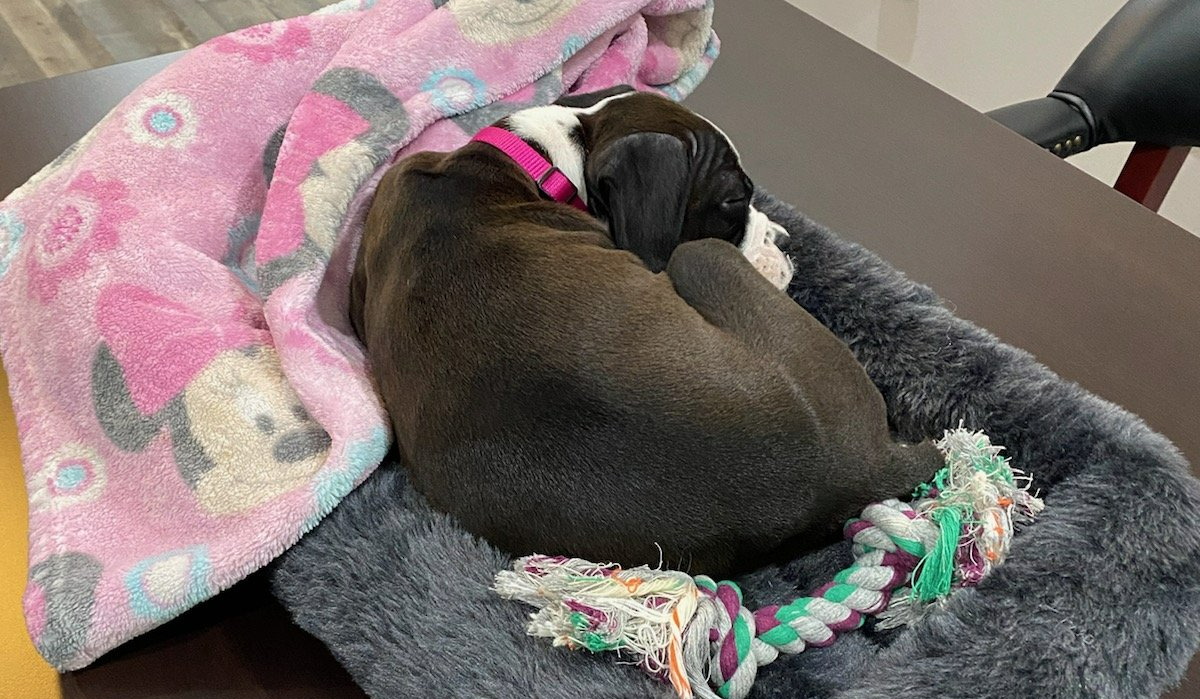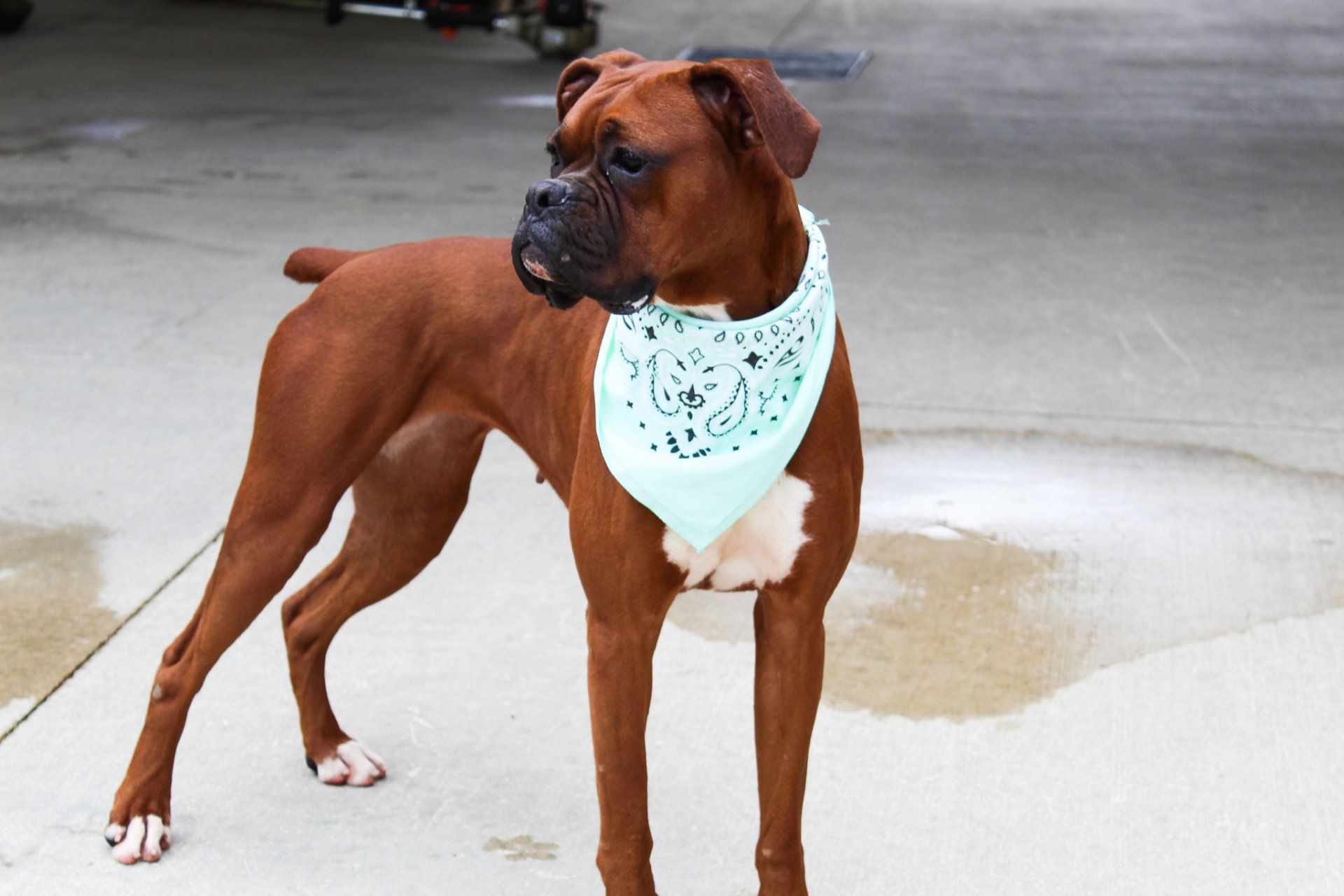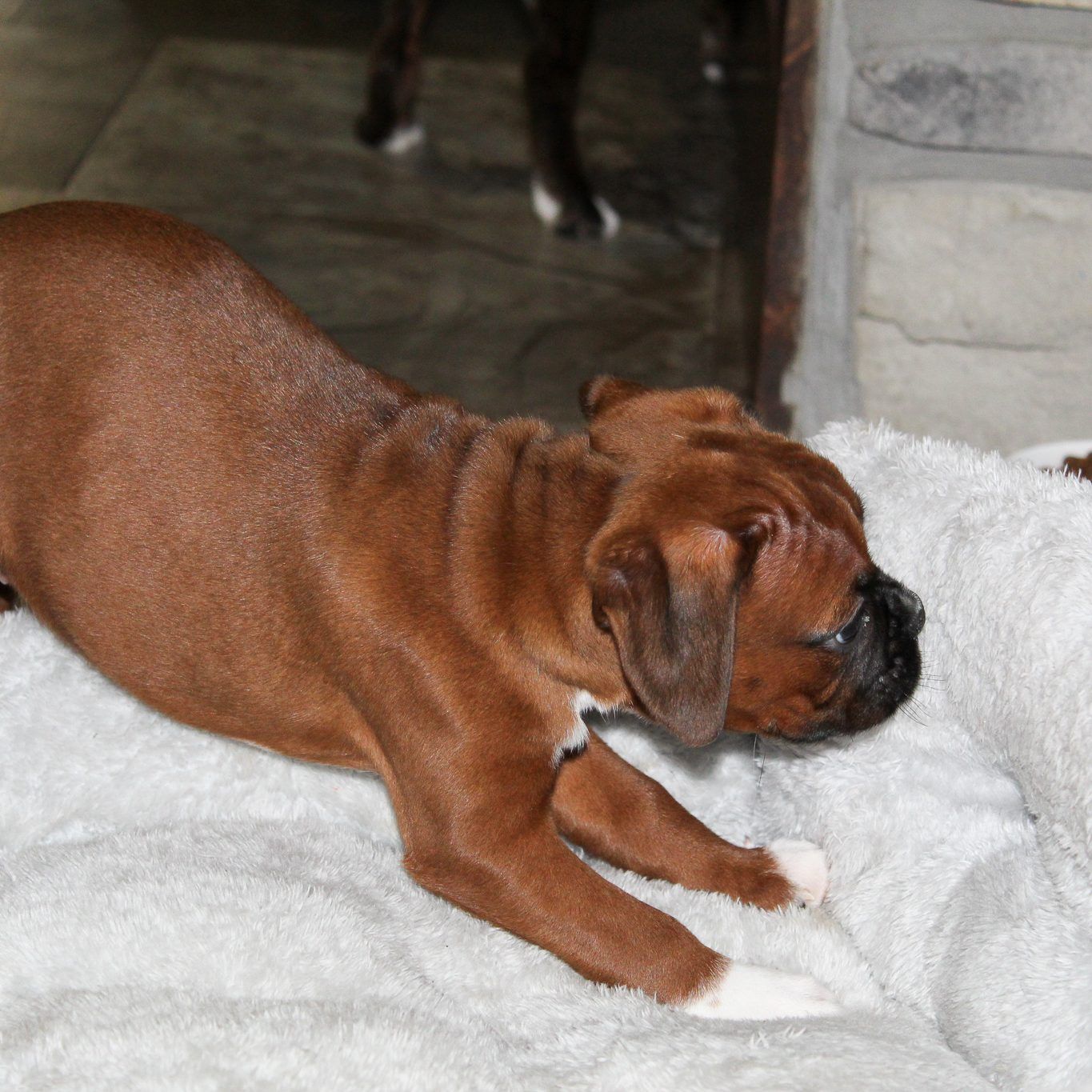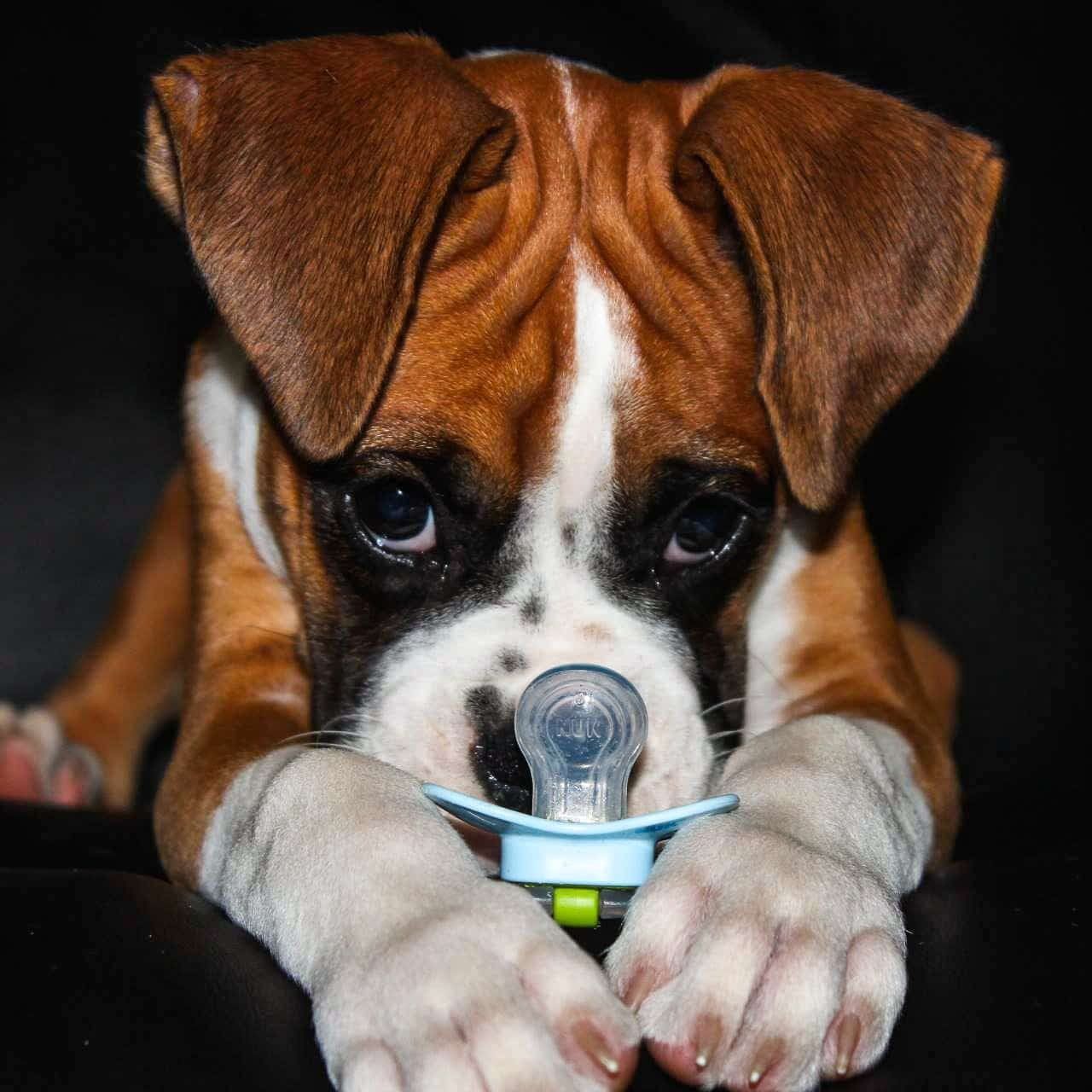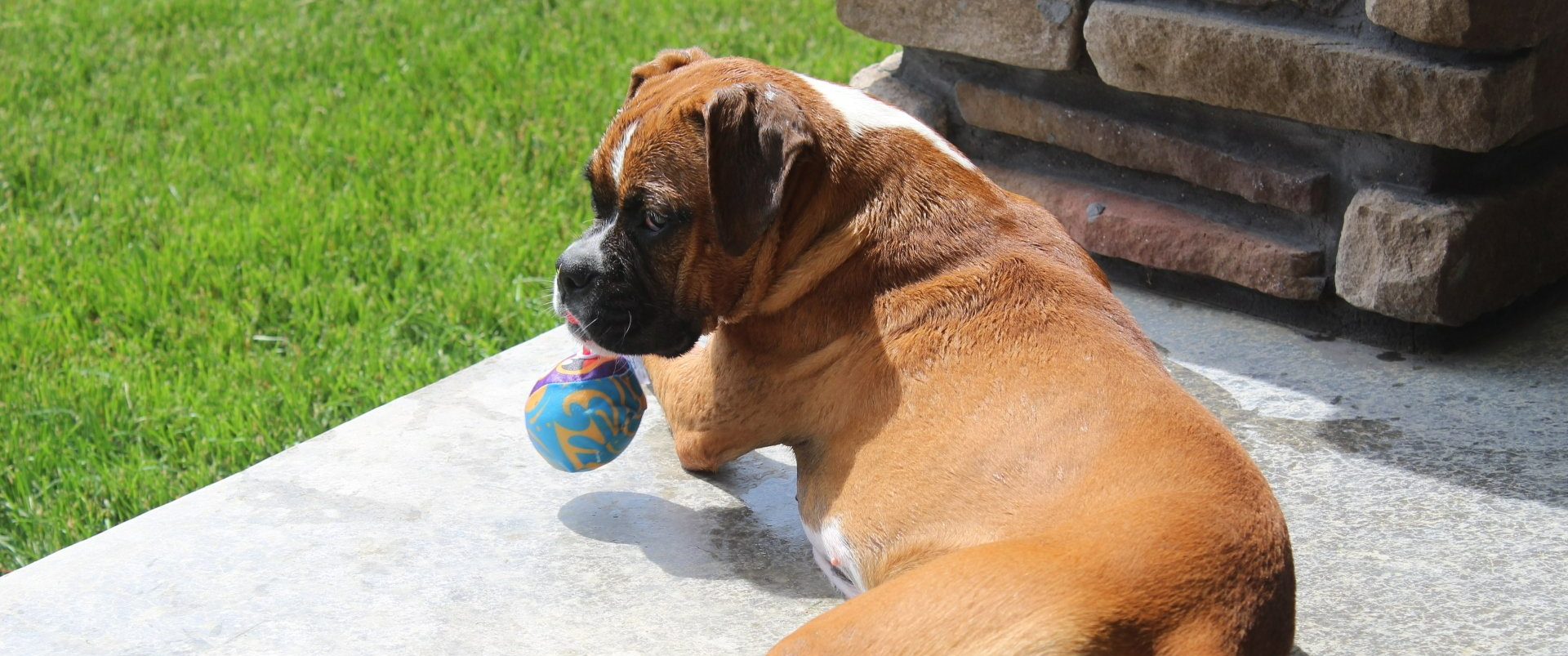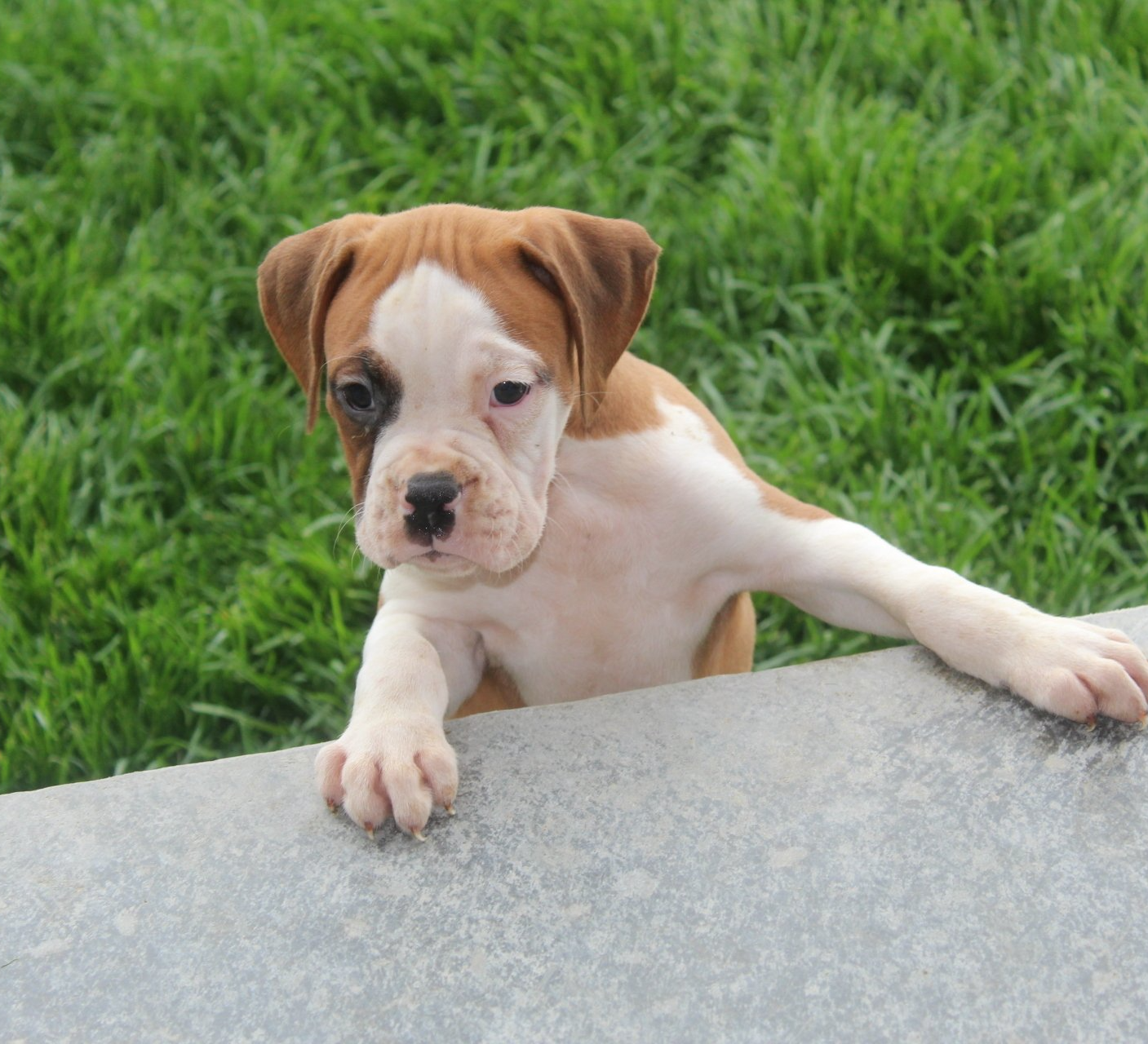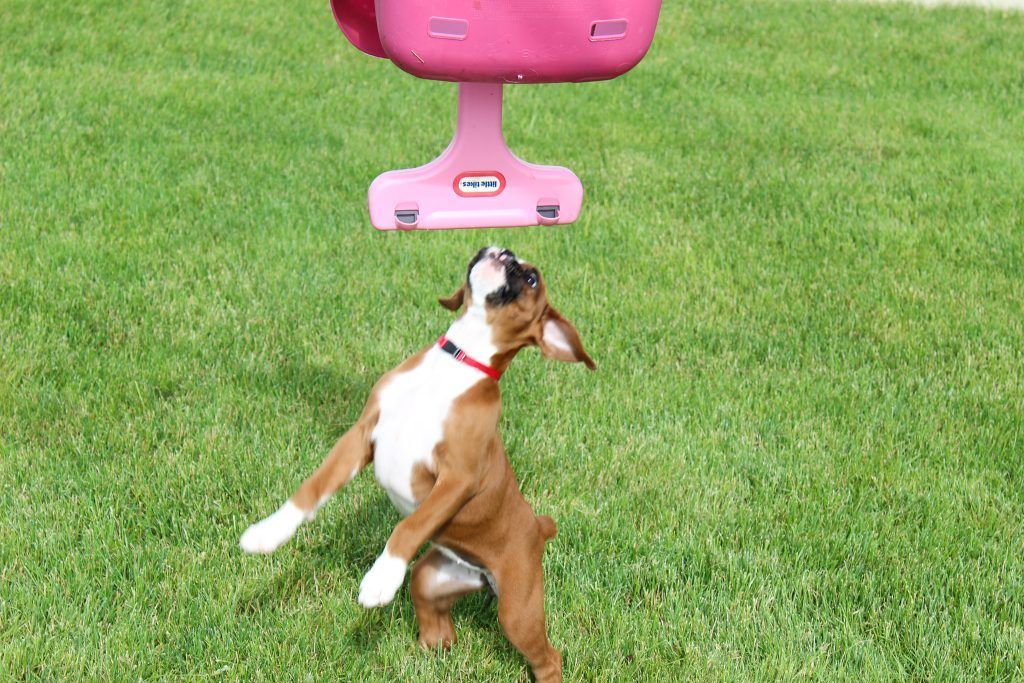How To Care For Your Boxer In The Winter
- General Winter Care Tips (HUMIDITY LEVELS)
During winter, both indoor and outdoor elements affect your boxer puppy that you must know about and address. Let's take the humidity levels in the house, for example. If the air stays arid for a long time, your boxer dog's skin may become itchy, and this is when you will see him nibbling at himself and licking his paws. It can also cause flaking and peeling of the skin.
Also, when the air is arid, your boxer dog may experience breathing issues and have a scratchy throat. You may notice him snoring at night.
WHAT YOU SHOULD DO: Install high-quality humidifiers in your house, especially in the room where your boxer puppy or dog spends the most time. If he dry-coughs or snores, you can place one around his sleeping area. Some other home remedies for this include leaving the bathroom door open when taking showers, keeping house plants around, and placing bowls of water on radiators.
- Restlessness, Exercise, and Intolerance to Cold
During winter, your boxer puppy gets to spend less time outdoors, which is due to the harsh weather. This may be detrimental to your boxer puppy because he builds a reservoir of energy that he would like to expend. Your dog may become restless and stressed, which may lead to him chewing on non-toy items and the exhibition of destructive behavior.
Restlessness during winter can also lead to your dog, not getting the chance to put his canine senses to use. Dogs relax better when they have enough opportunities to use their canine senses of smell and hearing.
Cold intolerance is another problem that boxer dogs find challenging to handle. Do not think that because boxer dogs are big in size, they can withstand cold. Before you leave your boxer dog outside in the cold, make sure you have accurate readings of the wind chill alongside the air temperature. A boxer can handle a temperature above 32F, which is the freezing mark for at most 30 minutes thrice a day.
WHAT YOU SHOULD DO: Observe your boxer closely to ensure that he is really comfortable when outside during winter. If he is not comfortable, it won't be very easy to achieve any success in both exercise and house training. And if your boxer does not get adequate exercise, it could lead to an increase in fat, loss of muscle mass, or a lousy mood.
If the temperature is below 32F, you should winter-proof both his nose and paws. Also, wear quality thick clothing for him to maintain warm core temperature. This will help him handle the cold air. If the temperature drops to around negative 20F, you should not keep your dog out for more than 10 minutes; otherwise, his ears and tails may start getting frostbite. Also, protect yourself by wearing thick clothing as you will get cold before your boxer dog will. If there is a blizzard condition, do not take your boxer dog outside at all.
- Changes in Appetite
Your boxer dog may start eating more or eating less during the winter season. Whichever one of those two that he does depends on his activity level. If nothing changes in his activity level, he will eat more. The difference between how much food your boxer consumes in winter and summer can be up to 20%. If your boxer dog is not very active during winter, his appetite may reduce as a result of self-regulation. If, on the other hand, your adult boxer is less active but eating more and gaining weight, you should reduce the calorie content of his meals. Examples of low-calorie foods include blueberries, raspberries, carrots, peas, string beans, and frozen fruit.
- Shedding
Boxers shed their coat at the beginning of winter and at the end. When you see that your boxer dog's coat is thick, you should stay on top of the grooming. Use quality de-shedding tool to get rid of dead hair and comb through the coat to keep it clean and healthy. Brush the coat regularly every week to ensure that no dead hair is trapped close to the skin. A leave-in coat spray will also help keep the coat moist.
- Boxer Dog Paw Care
The paws are the body parts of your boxer dog that bear the brunt of winter the most. The dog walks with his paws, and depending on the surface he walks on, the paws will bear the impact. It could be sharp shards of ice causing cuts in the paws or small pieces of snow getting wedged in between the toes to cause "snowballing" or even chemical burns from ice melt products. Whichever it is, you should know some important boxer dog paw care to keep your boxer free of any pain in his paws.
WHAT YOU SHOULD DO: Protecting your boxer dog's paws should be top on your list of boxer dog winter care tips. You can prevent future paw problems by using a quality paw wax for your dog. Paw wax will keep your dog's paws healthy, while a high-quality one will help add a breathable layer of protection to prevent issues like snowballing and the penetration of winter chemicals. If your dog also has some skin issues like irritation, dryness or peeling, canine paw wax will help the paws heal faster. When buying a paw wax, buy the one that is durable, absorbs fast, and is not oily.
- Boxer Dog Nose Care
Your boxer dog's nose is vulnerable to different things in the environment as it has nothing to protect it. If the body takes in too much of dry cold air, the effects are first felt in the nose. Some of the things that happen to your Boxer Dog's nose include peeling and cracking, which you can treat from home if you get the right product. If your dog's nose cracks to the point of giving out pus or blood, you will need to visit the vet to check for the presence of an infection. To keep your dog's nose safe from winter-related issues, you should get a quality nose balm to keep his nose well hydrated throughout winter. The balm will protect the nose from chapping, windburn, and dryness. Make sure the product is an all-natural product to prevent a situation where chemicals will make the nose more irritated.
- Boxer Dog Skin and Coat Care
The winter season can make the coat of your boxer dog look dry and dull. The coat may lose its shine, and the skin may become dry, and if it continues, it may become brittle and coarse. None of these are ideal conditions to leave your boxer dog in, and you have to do something about it.
- Make sure you bath your boxer dog regularly during winter. Baths are not only for removing dirt; you need to wash off those body oils that your dog's body releases to keep its body lubricated and moisturized.
- You should also not use any soap on your dog. The pH of the soap must be balanced, and for this reason, you must not use human shampoo or any type of cheap shampoo. The pH balance that a dog shampoo should have is between 7 and 7.5.
- Any bathing product you are using, endeavor to add more moisture because the dry air will keep making them get dry quickly.
- Get a leave-in product to protect the fur. Such a product will reduce static, prevent breakage, retain moisture in the skin and coat, make your boxer dog smell nice, and reduce friction on the coat. When applying this product, make sure you do not leave out the tail.
CONCLUSION
Without a doubt, winter can be stressful for both human beings and pets. Human beings can take care of themselves; your boxer dog cannot. This is why you have to apply all the boxer dog care tips highlighted above and continue to live with a happy and healthy dog.
